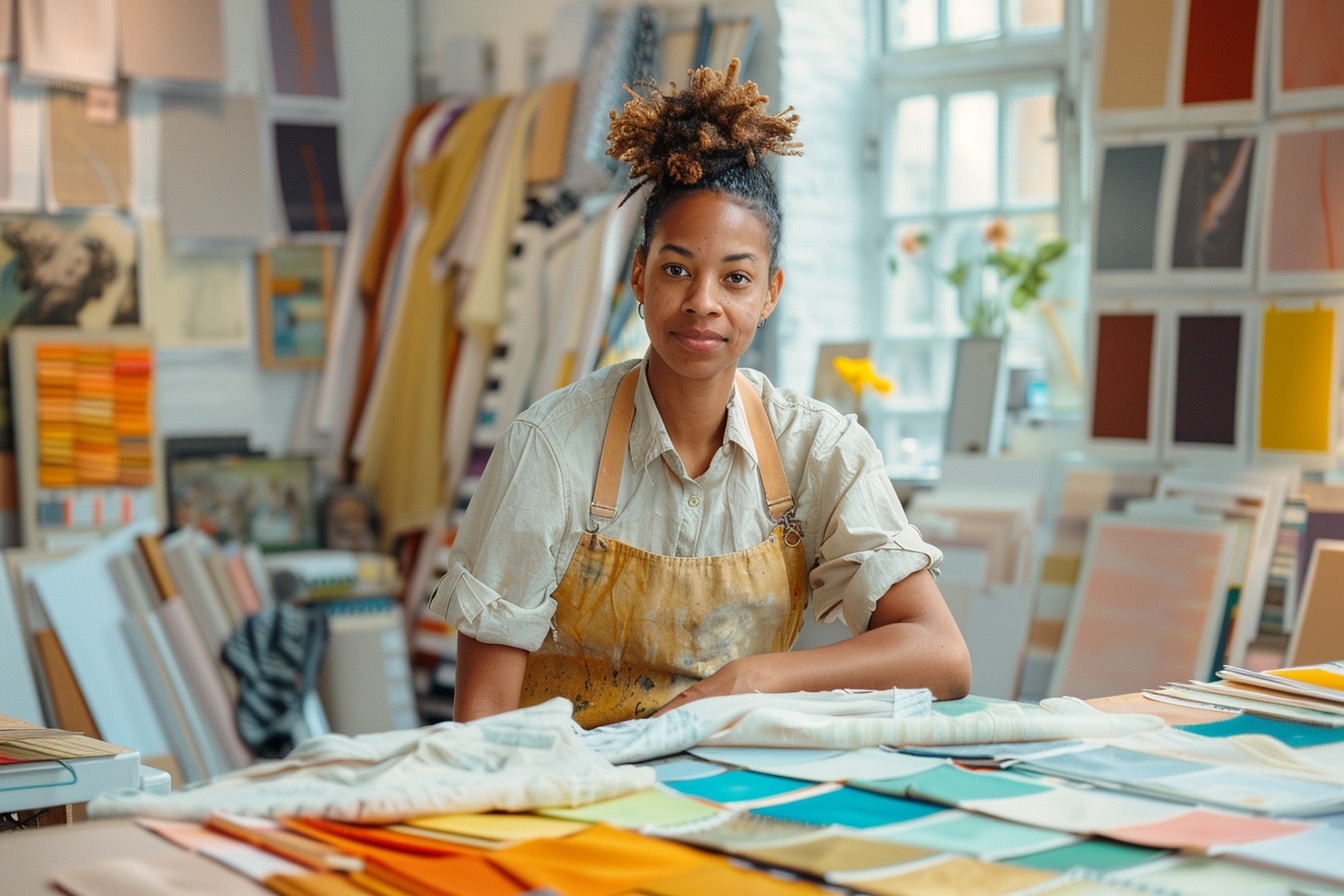Unraveling the Path to Becoming an Interior Decorator: Essential Degrees and Qualifications Explained!

Interior decoration is a field that combines creativity and technique, allowing living spaces to be transformed into aesthetic, functional and personalized places. If you’re considering a career in this exciting industry, you’re probably wondering what education and skills are needed to become an interior designer. In this world where skill and know-how are king, several paths can lead to the profession of decorator. Let’s take a closer look at the qualifications required to enter this artistic profession.
Academic training in interior design
A multitude of training courses can lead to the profession of interior decorator. Level of study and specializations may vary, but here is an overview of the main options available.
Bac+2 level diplomas
The BTS Space Design
This higher technician certificate offers solid theoretical and practical training. Students learn to master the design of interior spaces, layout and decoration. The subjects taught are varied: drawing, art history, applied technologies, study of materials, etc.
The DMA Applied Arts
The crafts diploma (DMA) specializing in applied arts allows you to deepen your knowledge in spatial design. This course is a springboard for those who wish not only to decorate, but also to create furniture or decorative elements.
Bac+3 level diplomas
Bachelor of Applied Arts or Design
A degree in a school of applied arts or a university allows you to acquire a broader artistic culture. The space design course is particularly recommended for those who wish to open the doors to interior decoration.
Bac+4 and +5 level diplomas
The Master in Design
The master’s degree offers further specialization and prepares students for greater responsibilities, including the management of complex projects. The emphasis is on creativity, innovation and research.
Private Decoration Schools
Several private schools offer specialized training in interior design, ranging from certificate level to master’s degree. These establishments often offer a teaching approach geared towards practice and concrete aspects, with internships in companies.
The importance of continuing education
Training does not stop with obtaining a diploma. The interior design sector is constantly evolving, and it is essential to stay informed of new trends, material innovations and the latest standards.
Professional and certification training
For those considering a career change or wishing to complete their initial training, many organizations offer professional qualification certificates (CQP) or RNCP certifications (National Directory of Professional Certifications). These training courses are often focused on practical aspects of the profession and allow you to acquire additional legitimacy on the job market.
The role of practical experience

Beyond diplomas, practical experience is a considerable asset in this profession. Internships, work-study programs or first jobs provide invaluable opportunities to apply the knowledge acquired and develop a portfolio of achievements. For an interior designer, the portfolio is often as important as the CV, because it reflects their personal touch and style.
Talent and creativity: are they enough?

While talent and an eye for aesthetics are essential, they are not enough to ensure a successful career as an interior designer. Knowledge of safety standards, CAD software (Computer Aided Design and Drawing) and presentation techniques are, for example, key skills that are acquired through training.
The versatility of the interior decorator

A good interior designer must be versatile. He is often required to interact with customers, craftsmen, suppliers, and must therefore have communication and project management skills. The ability to establish and stick to a budget is also an essential professional skill.
Knowledge of styles and trends
Being aware of trends and styles is essential. An interior designer must be able to advise and guide his clients according to their tastes, but also guide them towards choices that are both timeless and anchored in the era of time.
Self-training and cultural openness
Self-taught learning, supported by intellectual curiosity and cultural openness, can pay off. Reading specialist magazines, visiting exhibitions, attending trade shows or even studying the history of architecture are ways to enrich your knowledge and nourish your creativity.
To qualify for the title of interior designer, holding an appropriate diploma is often a sine qua non condition. Whether it is a BTS, a DMA, a license, professional training or a master’s degree, the choice is wide and must adapt to the aspirations and needs of each person. However, well beyond diplomas, it is experience, open-mindedness and the constant renewal of skills that will make you a sought-after and appreciated professional in this creative and technical field.
Comments
Leave a comment